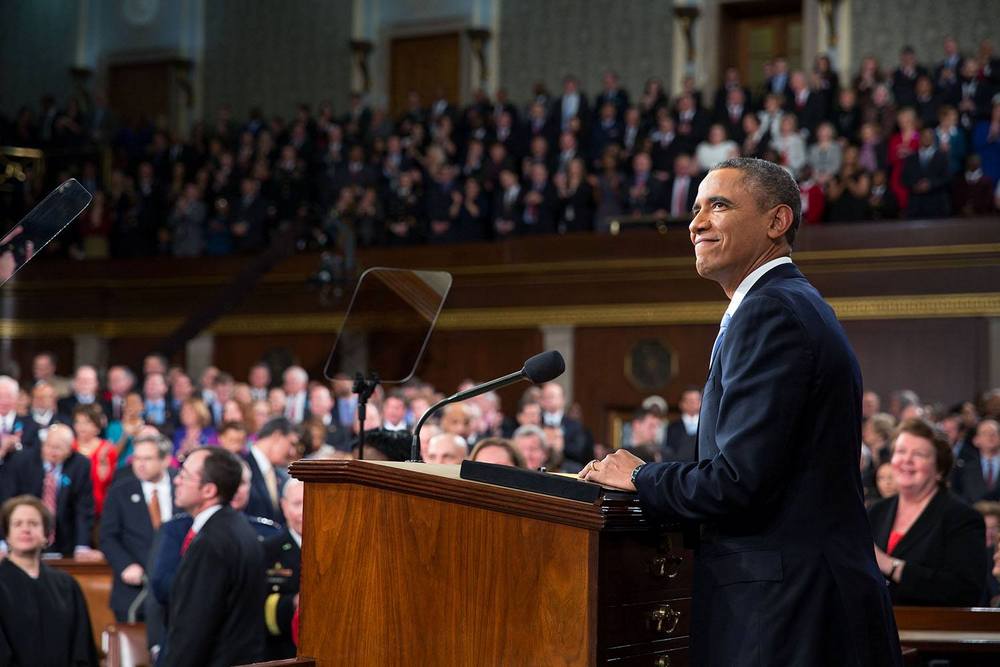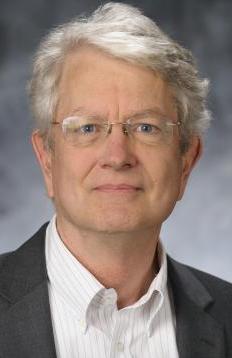
The Last Hurrah

When President Obama delivers his final State of the Union address tonight, you might be tempted to think he’ll do something bold, maybe even original. You would probably be wrong. John Woolley, a professor of political science at UC Santa Barbara and an expert in presidential politics, says history suggests Obama will stick to a familiar script.
“If you look at the most recent ‘final’ State of the Union (SOTU) from two-term presidents — Ronald Reagan, Bill Clinton and George W. Bush — you see a kind of common set of themes, I think: ‘We’ve made great progress toward important goals; the work is not finished (and I’m not done being president, either!), and my administration has worked to advance and consolidate basic American principles that can be traced right back to the founders,’ ” Woolley observed.
Unlike earlier SOTU addresses, when facing an opposition Congress, the president’s final address is seldom focused on a program calling for new initiatives, noted Woolley, co-founder and co-director of The American Presidency Project, an online database of presidential archives.
Most final addresses fall short of memorable. “Reagan’s strikes me as the best speech in terms of the graceful language and affecting rhetoric,” Woolley said. “But in my read, none of these speeches, which proclaim the positive trends set under way, would serve as a particularly good forecast of any more distant future. They are self-interested and necessarily partial recitations of recent history and hopeful descriptions of possible positive future trends.”
That’s not to say they have no purpose. A president’s final SOTU address means an election is just around the corner, and Woolley notes most lame ducks aren’t above getting in a word or two on the subject. “Of course these ‘final’ SOTU are also constructed with an eye toward the coming presidential campaign and issues that will dominate there,” he said.
Delivered to a joint session of Congress and attended by Supreme Court justices, military leaders and guests of the First Family, the SOTU is generally devoid of drama, Woolley said, but it has its moments. “For the most part SOTU are not memorable and this is certainly true of the last year,” he observed. “Early SOTU can serve to articulate important programmatic themes (Four Freedoms, Great Society), but you don’t find that in the final ones.
“Like all SOTU there can be glitches and spontaneous moments that are charming (as when Clinton called for making our communities more ‘liberal’ instead of ‘livable’), Woolley added. “And it’s always interesting to see how presidents steer their way past failures or disasters (usually just by ignoring them).”
Not surprisingly, any rhetorical sharp elbows in the speech are saved for a president’s political adversaries. “They all, interestingly, involve fairly pointed criticism of Congress and what the president views as their failures,” Woolley explained. “And of course, in all cases the presidents faced Congresses dominated by opposition parties. And yet, they all summon everyone to a non-partisan pursuit of American values (not Republican issues, not Democratic issues).”
One thing the nation likely will not see is Obama breaking the record for longest SOTU. That distinction belongs to a president not known for his loquaciousness: Jimmy Carter. His address in 1981 ran a staggering 33,667 words. Neither will Obama likely deliver the shortest. George Washington holds that honor, with a terse 1,089 words in 1790.



